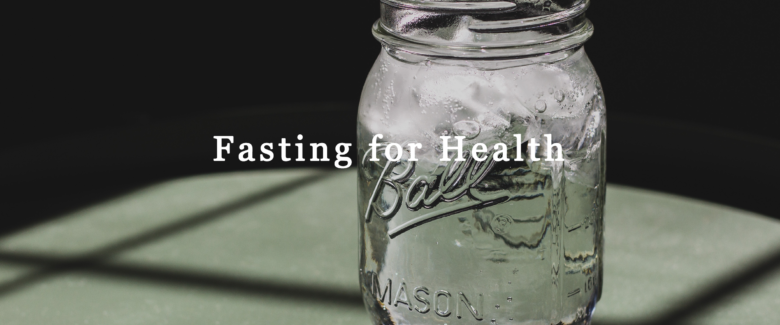Fasting has gotten a lot of press in the holistic (and not-so-holistic) world lately. Nutritional Fasting is going without food for an extended period of time. This doesn’t mean going without water. In fact, water is essential when you are fasting. Although the terms fasting, intermittent fasting, fasting mimicking diet, and calorie restriction are all different, for the purpose of this article we will not differentiate.
Fasting is not an excuse to eat crappy. It is to enhance your health and clean up shop. Preserving muscle when you are fasting is important so eating a nutrient dense diet when you are not fasting is really important.
Healthy ways to fast (always with the guidance of your health care practitioner!)
- Fast for 12-16 hours. Most of which will happen when you are sleeping and 3 hours before bed or start eating at 12pm and stop at 8pm. Remember, Sumo wrestlers gain their weight by eating a lot right before bed.
- Reduce calories 2 days a week to 500 calories for women and 600 calories for men a day on non-consecutive days and eat a moderate calorie/ high nutrient diet the other 5 days. Info here.
- Eat a nutrient dense, calorie restricted diet for 5 days once a month. This is the one I did recently. It is called ProLon and I will blog about this next week.
Benefits of Fasting
- Slows down aging. Studies have shown that calorie restriction can extend lifespan, increase stem cells and prevent disease in animal studies. People studies are going on as I write this. One “people” study can be found here.
- Lowers risk of heart disease. It decreases blood pressure and cholesterol and increases the protective HDL cholesterol.
- Decreases inflammation. Intermittent fasting has been shown to decrease C-reactive protein, an indicator of inflammatory factor related to heart disease.
- Decreases the risk of diabetes. It significantly decreased insulin resistance. Found here.
- Benefits brain function. Less brain fog is the most common benefit that I hear about in my patients. There is a hypothesis that the brain is benefited because of a decrease in oxidative stress and inflammation and that there is more communication between the nerves in the brain. Info here.
- May help with autoimmune disease. “When you starve, the system tries to save energy, and one of the things it can do to save energy is to recycle a lot of the immune cells that are not needed, especially those that may be damaged,” Dr. Valter Longo
- May be protective against cancer. Shown to be effective in cancer prevention in mice and monkeys, the human studies are underway. Once again the benefits, most likely, come from the anti-inflammatory effects and decrease in oxidative stress and cell proliferation, among other things. Info here.
- Weight loss. When you use up all your stored blood sugar your body will naturally turn to body fat as a source of energy.
- Detoxification. Since many toxins are stored in body fat, the reduction of body fat can clear away toxins.
Who should not fast:
- Children under 18 years of age
- Women who are pregnant or nursing
- People with a body mass index (BMI) of less than 18.5
- Those diagnosed with and are currently suffering from a medical condition unless working closely with a licensed healthcare professional.
- People who are weakened by disease or medical procedure
- Those who are on medication that need to be on a higher calorie diet
- People with a history of cardiac disease, consult a licensed healthcare provider before practicing a calorie restricted diet
- People who have a history of fainting, consult a licensed healthcare provider before practicing a calorie restricted diet
- Anyone with a history of anorexia or bulimia.
So what do I eat after I fast?
It’s important to take advantage of the state your body is in while you were fasting. To do this you want to eat a diet consisting of mostly organic vegetables, some healthy fats like avocado and olive oil and a small amount of grass fed/ organic protein. This will rebuild your organs and systems with the best possible fuel.



Hi Dr. Francis – let’s discuss this more if you have time towards end of the month…
Dr Stacey, Very informative. Thanks for taking the time.
Thanks John. It’s been a long time. Hope you are doing well.
Will do!